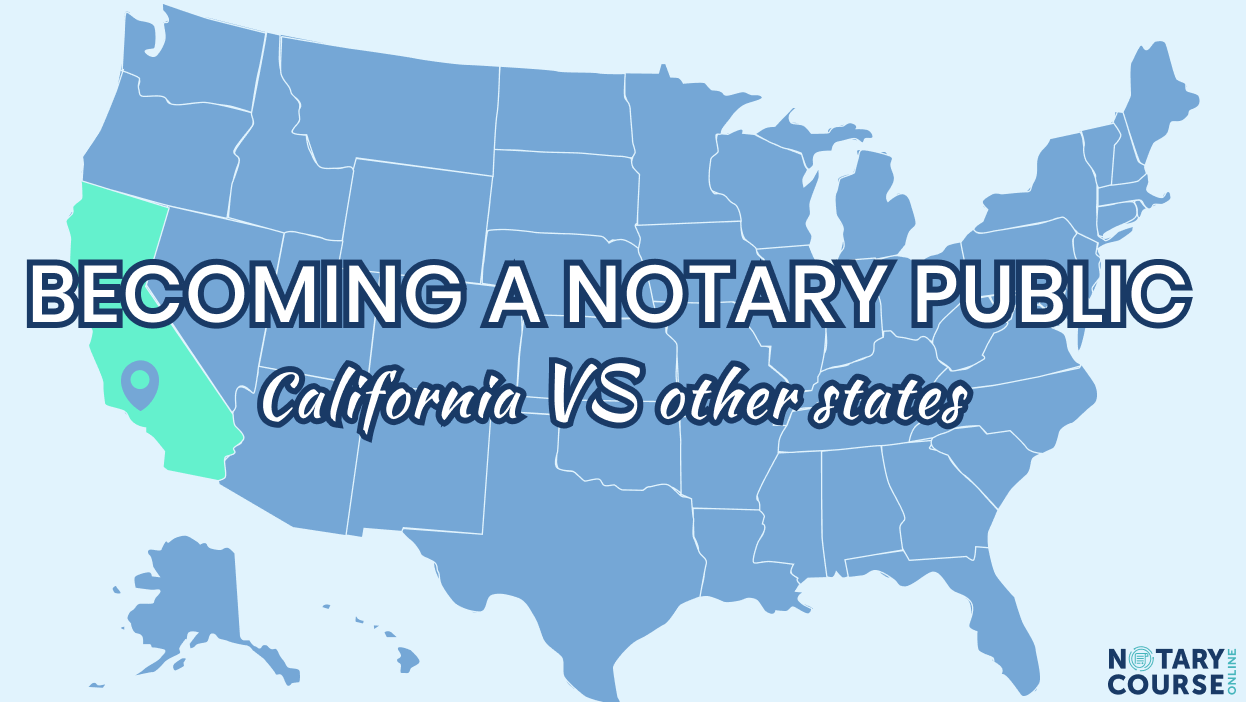California
Blog
The Ultimate Guide to the California Notary Exam 2023

-
by Notary Course Online
- November 9, 2023
If you’re a legal California resident who wants to become a notary public, you are required to pass a written examination prescribed by the Secretary of State. The California notary exam is designed to test your knowledge of notary laws, procedures, and ethical responsibilities. The ultimate guide from Notary Course Online outlines the up-to-date specifics of the California notary exam as of 2023, including its format, questions, and tips for success.
Table of Contents
- Why is the California notary exam important?
- What is the exam’s format and cost?
- Who is the exam administrator?
- How to prepare for the CA notary exam?
- Conclusion
Why is the California notary exam important?
Passing the notary public exam is an important step towards becoming a notary public in California. Whether you are interested in starting a new career as a notary public or want to renew your notary public commission, passing the exam is one of the mandatory steps prior to appointment as a notary public.
What is the exam’s format and cost?
The California Notary Exam 2023 is a closed-book exam that consists of 45 multiple-choice questions. (The examination time, format, and requirements can be different in other states.) It has a time limit of 60 minutes, and a passing score is 70% or higher . An applicant must register in advance and visit an official testing site on a specified date. Check the updated California Notary exam dates in May-June 2023 to find the list of testing sites available in California.
New applicants and renewing notaries must pay the required $40 fee for the test, while retakes, in the event of a fail, cost $20. r. Applicants must bring a check, money order, or cashier’s check made payable to the Secretary of State with their name preprinted on the check. Learn more about the additional materials you must bring to the notary public exam here.
The California notary exam covers the following topics:
Notary Public Law and Procedures.
Applicants must prove their knowledge of California’s notary laws, including the Notary Public Handbook, the Secretary of State’s regulations, and the Civil Code. They must also know the general procedures for notarizing documents, such as verifying the identity of signers and maintaining a notary journal.
Ethics and Professional Responsibilities.
Applicants must be aware of the ethical and professional responsibilities of a notary public. These can include conflicts of interest (for example, when you notarize for a family member), fraudulent documents, and maintaining impartiality.
Notary Practices.
Applicants must prove their knowledge of common notary practices, such as certifying copies, administering oaths, and witnessing signatures.
Filing and Recording Documents.
Applicants must know how to file and record notarial documents.

Who is the exam administrator?
The notary public exam in California is administered through CPS HR Consulting. This is the only organization contracted with the California Secretary of State to administer the notary exam on behalf of the State of California. The registration process for the notary public exam is processed through the organization’s official website.
How to prepare for the CA notary exam?
Preparing for the California notary exam can be challenging, but there are open resources to help you get ready. Here are some tips on how to prepare for the exam and where to find study materials:
It contains detailed information about laws and regulations that control notary public services in California. You can download the latest version of the Notary Public Handbook from the California Secretary of State.
The state-approved 6-hour online notary course is a great way to prepare for the notary public exam because now you can take it from your home or any convenient location. Moreover, for all notaries public who apply for the commission renewal, the 3-hour notary refresher course is a great choice. The online course covers all the topics you’ll encounter on the exam. This includes notary credentials, obligations, and restrictions as well as proper identification procedures and record keeping. You can complete the course at your own pace and receive the same-day certificate of completion.
During the online course, you will be able to pass a practice test. The questions are designed to simulate the format and content of the real exam. This is the best way to assess your knowledge and indicate areas where you may need extra studying.
The exam has a time limit of 60 minutes, which means that applicants have an average of 1 minute and 20 seconds to answer each question. It is essential to practice time management to ensure that all questions are answered within the time limit.
The exam questions can be tricky, and it is essential to read each one carefully to ensure that you understand the details. We also recommend reading through all the choices before selecting an answer.
Conclusion
Before taking the California notary exam, all applicants are required to pass a notary public course from a state-approved vendor, such as Notary Course Online. The course covers the exam’s topics and provides additional study materials, including the Notary Public Handbook. With careful preparation and a focused approach, you’ll be able to successfully pass the California Notary Exam 2023 and become appointed as a notary public in California.






 Congratulations!
Congratulations!